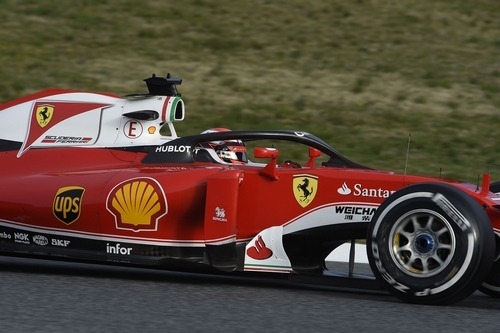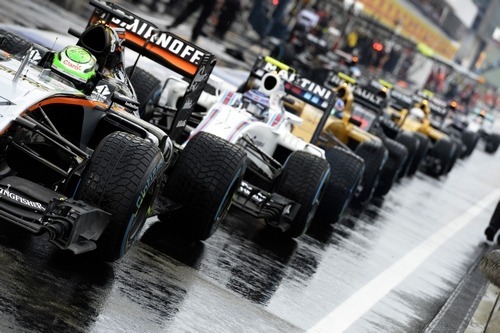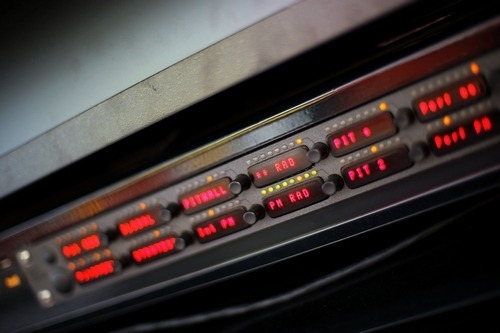
This week’s meeting with the F1 Strategy Group on Thursday in Geneva may bring big changes ahead of the German Grand Prix. These changes are related to standing starts, radio communications, track limits and the Halo safety device. It’s not clear what changes will be introduced for the German Grand Prix.

Following the controversial start at this year’s British Grand Prix, the F1 teams created the proposal of holding a regular standing start on full wet tyres after the safety car start in wet conditions. The proposal will see the safety car parade the cars around until the conditions are adequate for a safe standing start. The grid will then proceed to the grid and perform a regular standing start on the full wet tyres. The idea was approved by the F1 Strategy Group during their meeting on Thursday. Although these tweaks may not require any changes to the current regulations, the FIA may opt to add these changes into the rulebook, which would require approval from the F1 Commission and FIA World Motor Sport Council.

It was also decided during the meeting that the sport will effectively dump the current controversial radio clampdown regulations. This would allow teams full communication to their drivers during the race, as long as they grant the commercial rights holder full access to the team radio messages. The only restrictions to the team radio would be during the formation lap, during which the team radios would be completely locked down. This would prevent controversial and unnecessary penalties, while also ensure that the drivers start the race unaided. Because there are no official regulations regarding the team radio usage, the FIA would not be required to get the approval of the F1 Commission and FIA World Motor Sport Council before implanting this change.
The F1 teams also moved to get track limits penalties removed from the German Grand Prix onward. The teams feel that it impossible to accurately judge when a driver gets an advantage from exceeding the limits, leading to discrepancies in the application of the rule. The changes would likely only impact the race, meaning that qualifying lap times may still be invalidated if track limits are exceeded. The teams would like this change to be made for the German Grand Prix this weekend, but the FIA would like to review the proposal and any negative implications that it may have before making a final decision.

At the meeting, teams also voted against the introduction of the Halo safety device in 2017. Among the people who voted against the device was Bernie Ecclestone. The decision to delay the safety device was to allow more research and development to be carried out during next season, including on-track tests. The group decided that there was not enough time before the 2017 season to make a smart decision on the device. Jean Todt was one of the people who voted in favor of the device. The device would need to be approved by the F1 Commission and FIA World Motor Sport Council before it is added to the cars. It’s understood that the group will push for a 2018 introduction date.
It’s unclear at the moment which rule changes will be enforced at this weekend’s German Grand Prix. With the track action starting tomorrow, there is little time before the race, so it is possible that the regulation changes won’t be officially introduced until after the summer break.
Regulations Cause Confusion Over Hungary Grid
Rosberg Demoted To Third In British Grand Prix
Weekend Summary: 2016 British Grand Prix
Brabham: Head Protection Needs “More Research”
Driver Head Protection Creates More Danger Than Safety
Closed Cockpits Are Not The Solution